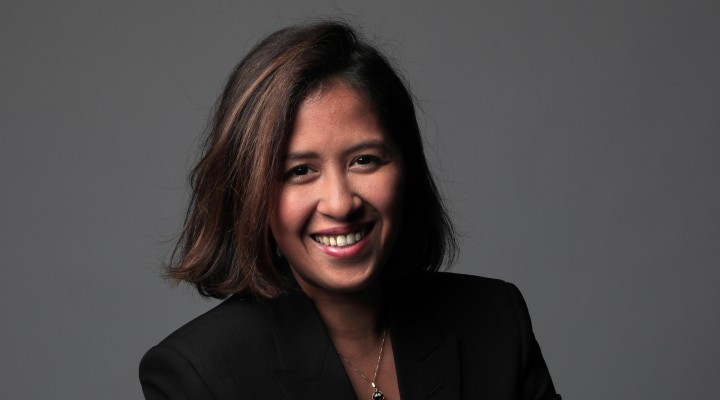After years working in the political sector in France, Dounia Wone decided to start a new career in retail at the peak of the pandemic, when she took on the role of chief sustainability and inclusion officer at luxury resale online business Vestiaire Collective. Here, she shares what that transition has been like, her passion for the environment and why politics and retail aren’t actually that different. It’s an interesting time to start a new job! How would you describe your past few months
ths at Vestiaire Collective?
Memorable! When I first decided to join Vestiaire Collective, I did not think that my arrival would take place under these conditions. It was definitely challenging as a single mother, starting the first day in confinement and not being able to meet with everyone in person, but I have always enjoyed challenges – it’s all about finding a well-framed organization to keep up.
The global crisis has also given me more purpose to my new role, as people are now questioning their habits and looking for eco-conscious alternatives in consuming fashion more than ever. It is my role to help drive the change we hope to see in the industry and reshape the future of the fashion ecosystem. I’m lucky to be part of a company that truly believes in sustainability and inclusion and that I have full support at the highest level. I believe this is the perfect recipe to succeed in the role.
Before joining Vestiaire Collective, you actually had a career in politics. Can you tell me about your background and what led you to entering fashion retail?
It might seem like an unusual career change for some, but in fact I am still fighting for the same cause. I have built my career alongside inspiring people who defend causes that are dear to me every day. I spent the last 10 years of my political career working on advancing political ecology and implementing strategies and actions that can be done at all levels.
Similarly, this is the kind of change I hope to bring to Vestiaire Collective, by maximising the potential of a virtuous business model at all levels within the organisation that truly believes in a more responsible, more circular economy.
What are some of the lessons you learnt in politics that you’ve been able to implement in your current role?
My previous roles have taught me to anticipate changes in society and to understand the major dynamics of the evolution of minds and opinions. The biggest challenge is to reconcile different interests, to balance business interests and social issues while having a real commitment to diversity, inclusion and the environment in your actions.
The first step is really just to take a step back and understand where you stand in order to find out where you want to go – and that is the first thing we did since I joined – to deep-dive and assess the ways of working at all levels before establishing best practices throughout the organisation. Sustainability andiInclusion are pressing social issues in this day and age. If you want to drive the change, you need to truly believe in it and take concrete actions.
What does the role of a chief sustainability and inclusion officer involve?
My role is to offer a vision that answers the environmental and social needs of the company and the industry. Some interesting projects that I am currently working on include setting up a task force to raise and address diversity and inclusion topics, developing a locally-sourced sustainable packaging solution, as well as introducing new features to educate our members of the benefits of sustainable behaviours on our platform.
What are some of the skills and strengths that a chief sustainability and inclusion officer needs?
To be successful, you need to know how to take a step back, hold onto your convictions and adapt. Patience is also a primitive quality because changing the world takes time. And above all, it is a transversal role and therefore you have to be surrounded by a good team because it is a collective adventure!
What are some of the most interesting things you’ve learnt about retail since you started your job?
It feels great to know that there are still many like-minded individuals who wish to help change the status quo and offer a more sustainable solution and create a better future for fashion. This includes brand partners, consumers, influencers and fashion activists. It is all about finding ways to work together and joining hands to take real actions to drive change. Like in politics, you have to walk the talk and make sure actions are taken throughout the organisation rather than just a marketing act, otherwise you will soon lose credibility and be seen as greenwashing
Given the pandemic, how has conversation around fashion and sustainability changed? People will step out of this crisis with a new mindset. They are reconsidering their priorities and the way they consume as people are starting to move towards buying less but better as the new approach to consumption. I do believe that this will further drive resale, as it’s a more conscious and affordable way to enjoy fashion.

